Testing you can trust
The DCC network relies on smart meters and communication hubs operating efficiently. We make sure that they do. We provide a range of services and support environments designed to test device operability, which lets us ensure functionality, and lets you ensure your smart metering systems work seamlessly on the network.
How we test
We help customers with the development and testing of gas and electricity meters and provide a range of services and facilities. From testing environments and software tools that can be accessed remotely, to process testing and certification, to face-to-face support - we’re here to help.
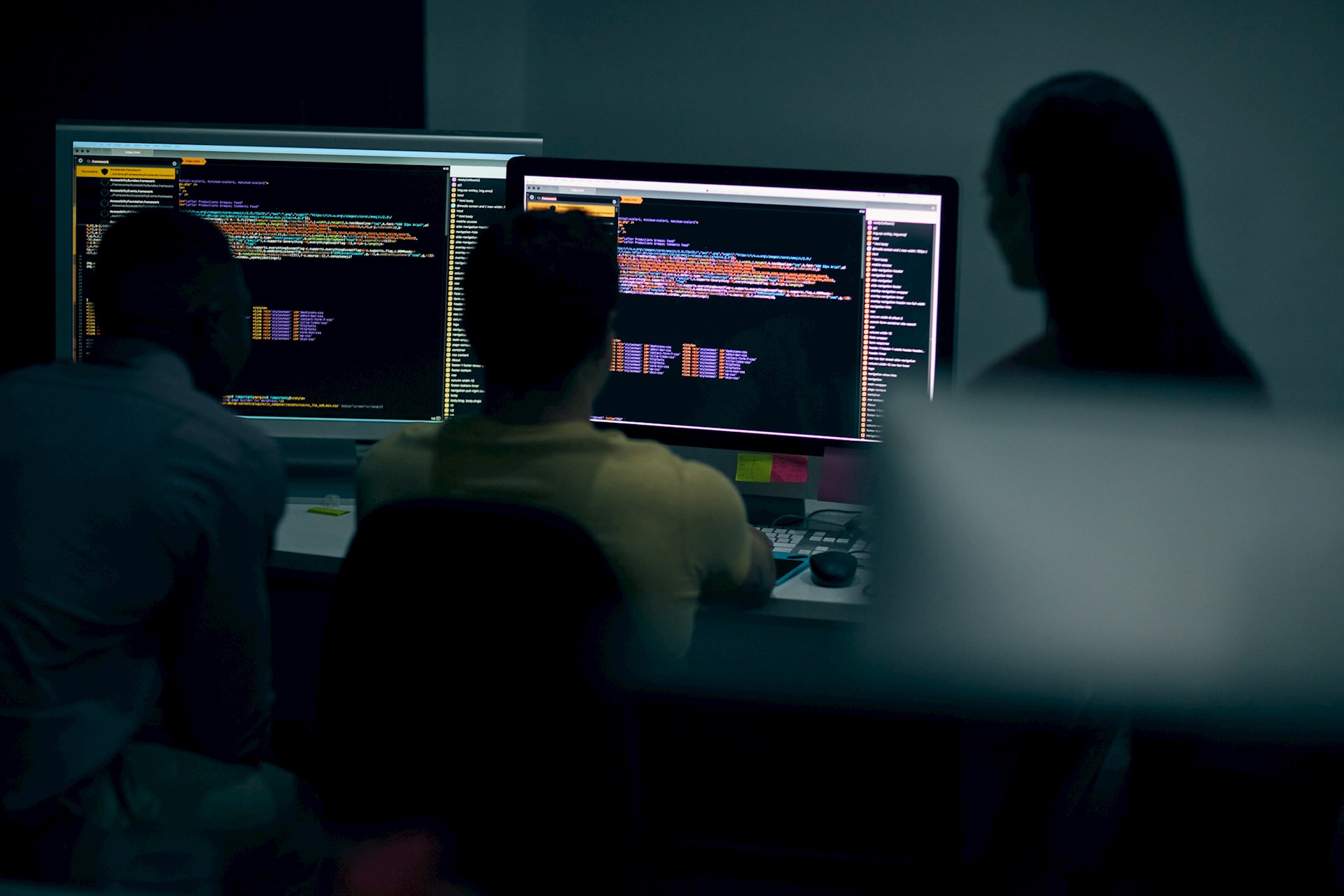
Supporting your certification
Apply through the DCC to complete SMKI and Repository Entry Process Testing and become an Authorised user with SMKI Repository access
Enabling user entry testing
User Entry Process Testing confirms that you’re able to send messages across the User Gateway in a dedicated test environment
Enduring testing and support
We're committed to continuously improving our testing services
Our testing facilities
Testing at scale
Our industry leading test labs allow customers to test meters at scale. We work in partnership with our customers to help make their testing plans a success.
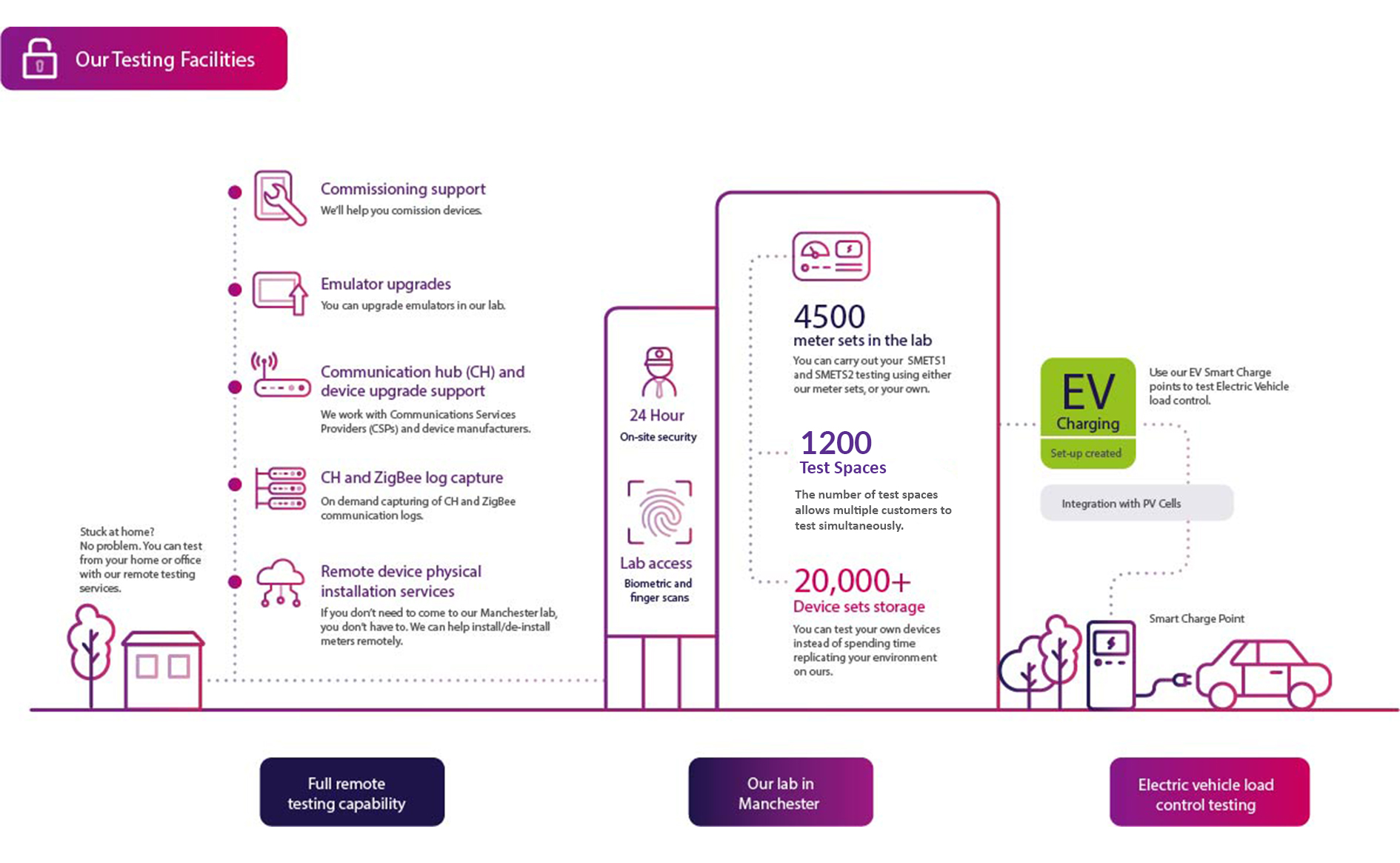
Who can test
If you’re on the network, we can help
SEC Parties
Smart Energy Code (SEC) Parties who want to become Users can use the DCC platform to conduct SMKI and Repository Entry Process Tests and User Entry Process Tests.
Third-Party Organisations
A device manufacturer, test house or energy supplier can use our services to test device interoperability against the DCC.
Authorised Users
Our Authorised Users can use (subject to entry criteria), a Remote Testing Service or the DCC Test Labs to test their back office systems against the network.
The types of testing we support

‘Noise Testing’ for new devices
We offer testing to measure radio frequency noise interference for all meter and communications hub combinations, in accordance with the latest version of the Intimate Communications Hub Interface specification (ICHIS).
All new SMETS 2 Electricity meter models must go through noise testing before they can be added to the Central Product List for approval for use on the DCC network.
Our noise testing operates to the highest industry standards at our world-class testing facility in Manchester. We test all configurations for comms hubs and meters, including Arqiva, 2G/3G and the new NextGen 4G based comms hubs.
To book the service please drop an email to testing.notices@smartdcc.co.uk.

Get certified
These tests are the main way to secure communications between customers and smart metering devices such as smart meters and communications hubs.
They demonstrate that systems can connect to the SMKI Services and the SMKI Repository interfaces and to become a DCC customer they have to be completed. Once passed, you'll be issued with a SMKI Certificate for use when live.
This testing phase is important and we need to make sure we're able to support you. That means we need 60 days notice before you test. You can let us know by emailing testing.notices@smartdcc.co.uk

Connecting to our environments
Early User Connectivity Testing (EUCT) is voluntary and checks if your systems can connect over the DCC User Gateway to the DCC UIT Environment.
The test helps you ensure your systems can connect prior to User Entry Process Tests by confirming:
- Configuration of DCC Gateway Connections and firewalls
- Necessary SMKI Test Certificates
- Necessary DCCKI Test Certificates
- Configuration of TLS sessions
We need 20 days notice if you want to follow this test phase. You can let us know at testing.notices@smartdcc.co.uk

Get ready for Entry Process Testing
Pre-UEPT is a voluntary test phase to give you confidence in completing User Entry Process Testing (UEPT) successfully.
Pre-UEPT will help you make sure you get right:
- The interpretation of the DCC User Interface Specification (DUIS) message formats and cryptography
- Your integration and implementation of Parse & Correlate
- Onward processing of MMC data
We need 30 days notice if you want to take part in Pre-UEPT. You can let us know by emailing testing.notices@smartdcc.co.uk.

Confidence in your Service Requests
UEPT shows us that you've been able to successfully execute the required Service Requests (SRs) against the identified User Roles and scope for which you have notified us that you wish to use when live
In order to use our network this test has to be taken.
We need 60 days notice of when you intend to test so we can provide you with as much support as we can at this important stage of your onboarding. You can let us know by emailing testing.notices@smartdcc.co.uk

Are your systems interoperable?
Device and User System Testing (DUST) enables you to check that your devices, back office systems and associated procedures are compatible with our own.
It's up to you whether you decide to take this test. If you do, remember it must be taken in line with the requirements outlined in the Enduring Test Approach document. You can find this document here.

Supporting SMETS1 migration
This service helps you test that you can successfully initiate the migration of SMETS1 meters from the Smart Meter System Operator (SMSO) to DCC.
We need 40 days notice of you intending to take this test. You can let us know by emailing testing.notices@smartdcc.co.uk

Helping you prepare
The SRT test allows you to simulate the processes that you would have to use in the event that your Smart Meter Key Infrastructure was compromised.
It's intended to help build your understanding of what is needed to be done in a live situation, and to help us offer improvements to our recovery service.
The recovery service allows customers to test the process in which they would request replacement certificates for their devices, in the event that the system was compromised.

Testing new device combinations
Our testing service enables you to check if a new Device Model Combination (DMC) is interoperable with our systems. The service covers any new and undeployed Device Model Combinations (DMCs) including:
- Release of a new firmware version that impacts an existing DMC
- Creation of a new DMC through the device replacement process
Some changes will fall under 'substantive equivalence' and may not need testing. We'll review the proposed change and let you know if testing is required. There is no need for suppliers to submit for PPCT any DMCs that are currently on the Deployed Products List but not on the Eligible Product Combination List (EPCL).
To give the best support we need 25 days notice of you intending to use this service. You can let us know by emailing us at testing.notices@smartdcc.co.uk.

Testing built around you
If it's not possible to come into our world class testing labs in Manchester, you can order communications hubs for testing and equipment to connect to a test Wide Area Network. These, together your own meters can be installed into a 'remote' test lab at a location of your choice.
You'll be able to conduct Device and User System Testing to test the interoperability of meters with our network and, if you're a DCC User, perform end-to-end tests from your back-office systems to the meters.
We do charge a fee for the remote testing service. For further information about this, set up and timelines, please contact ServiceCentre@smartdcc.co.uk.
Testing as a Service
DCC Test Labs at Brabazon House offers a state-of-the-art testing facility. We offer customers our Testing as a Service capabilities to provide enhanced testing services and one-to-one support.
We offer
- SEC Testing - Mass testing the 6- and 12-month SEC Release for firmware prior to release. Supporting the development and assurance of the release.
- SOAK Testing - Testing devices with a typical production-like load over a period to validate behaviour under production use.
- Triage and Defect Assistance - Support and facilitate triage for bugs and defects in either UIT or SIT environments for device manufacturers and test participants.
- Device Testing - Stand up devices and combination of devices in a test environment to test their interoperability and use.
- New Product Testing - Support for devices that are in or recently completed development.
- Focus Days - Prearranged events where the team can focus on a particular area. Collaboratively come together to support or for knowledge transfer.
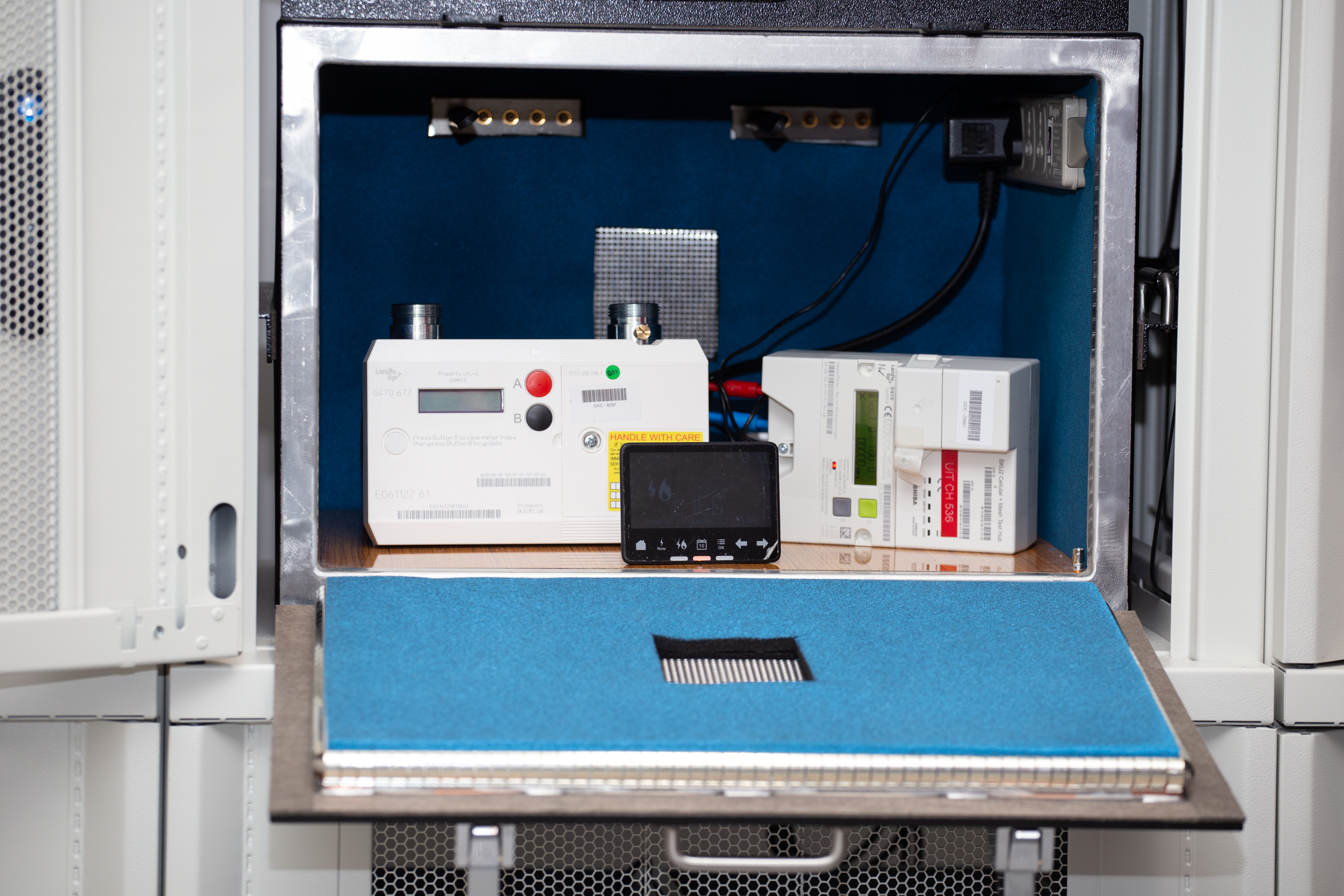
Benefits of DCC Testing
Low cost, high value
- Benefit from a low-cost test solution, which comes with support from DCC experts, and is the recognised industry standard for testing smart metering devices for homes and small businesses.
- Access broad and deep knowledge and technical expertise from DCC and its Service Providers
- Utilise the largest dedicated testing centre for smart devices in Europe
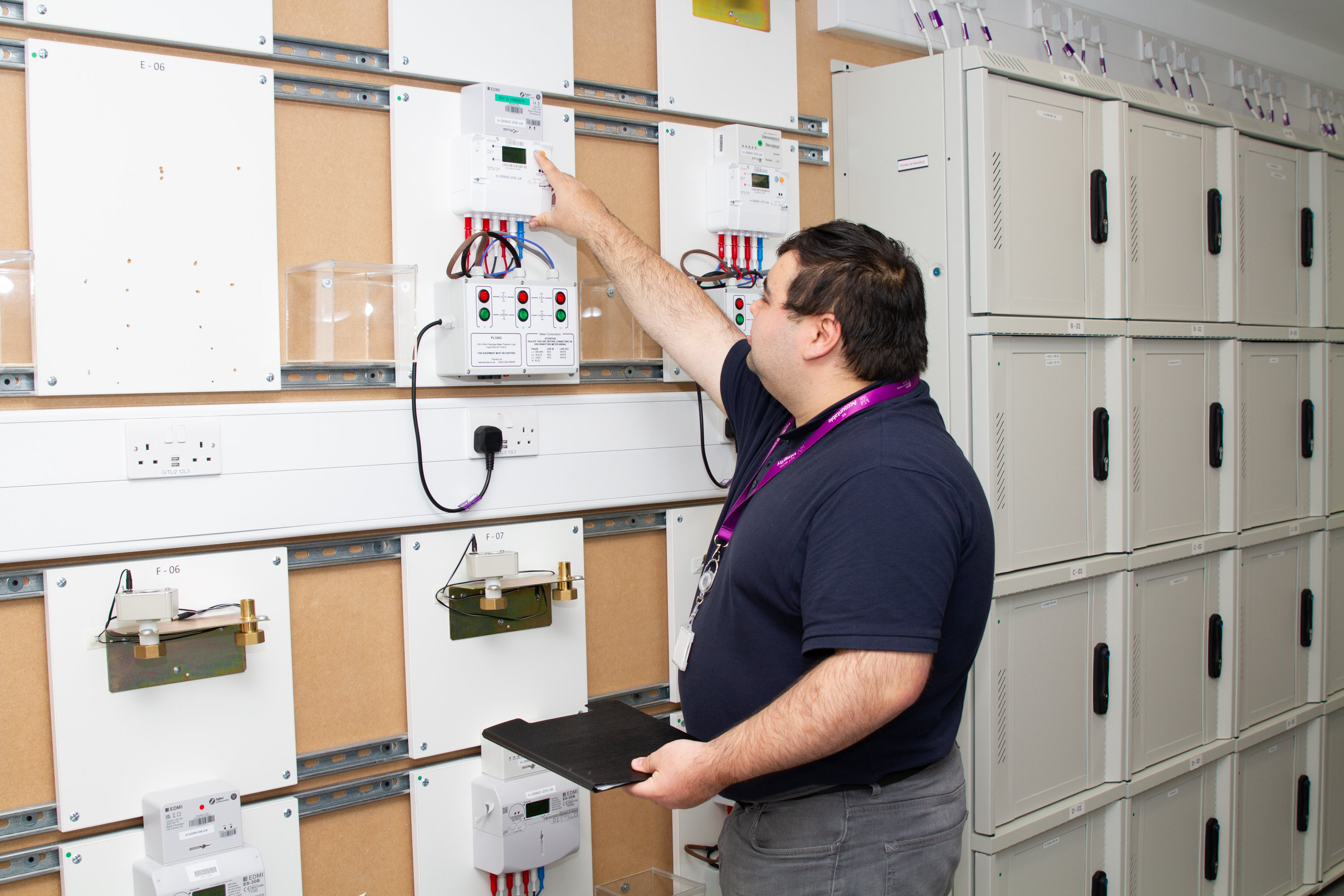
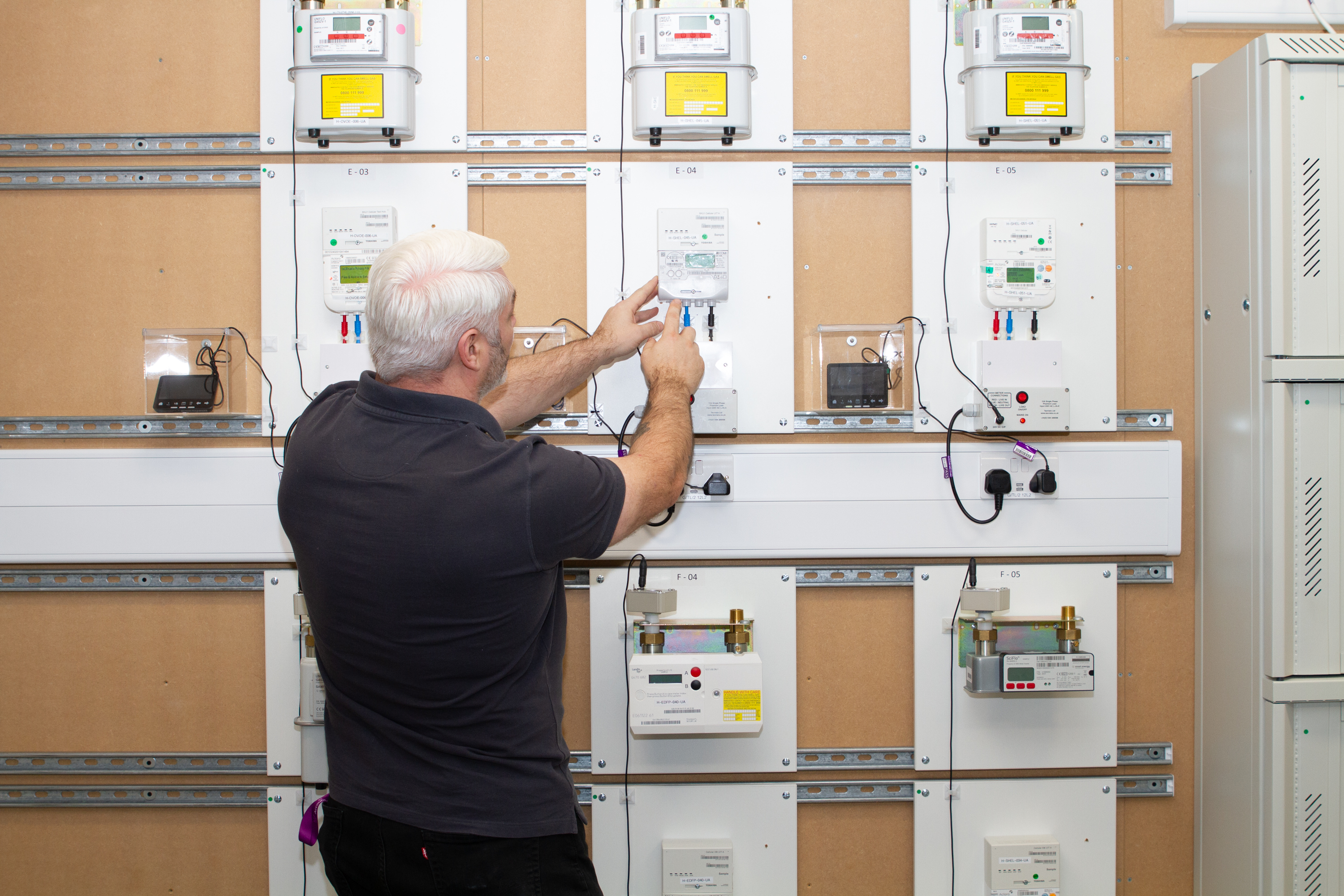
Unrivalled support
- Access to Debug Comms Hubs to support triage of defects
- On-site triage support and remote access to labs supported
- Maximising the use of the DCC network
Product validation
- Validate use-cases a device has for use of the smart metering system – ahead of making any commitment to becoming a DCC User.
- Test and learn across a variety of device configurations and scenarios.
- Extended range of device model combinations & access to all Communication Hub variants
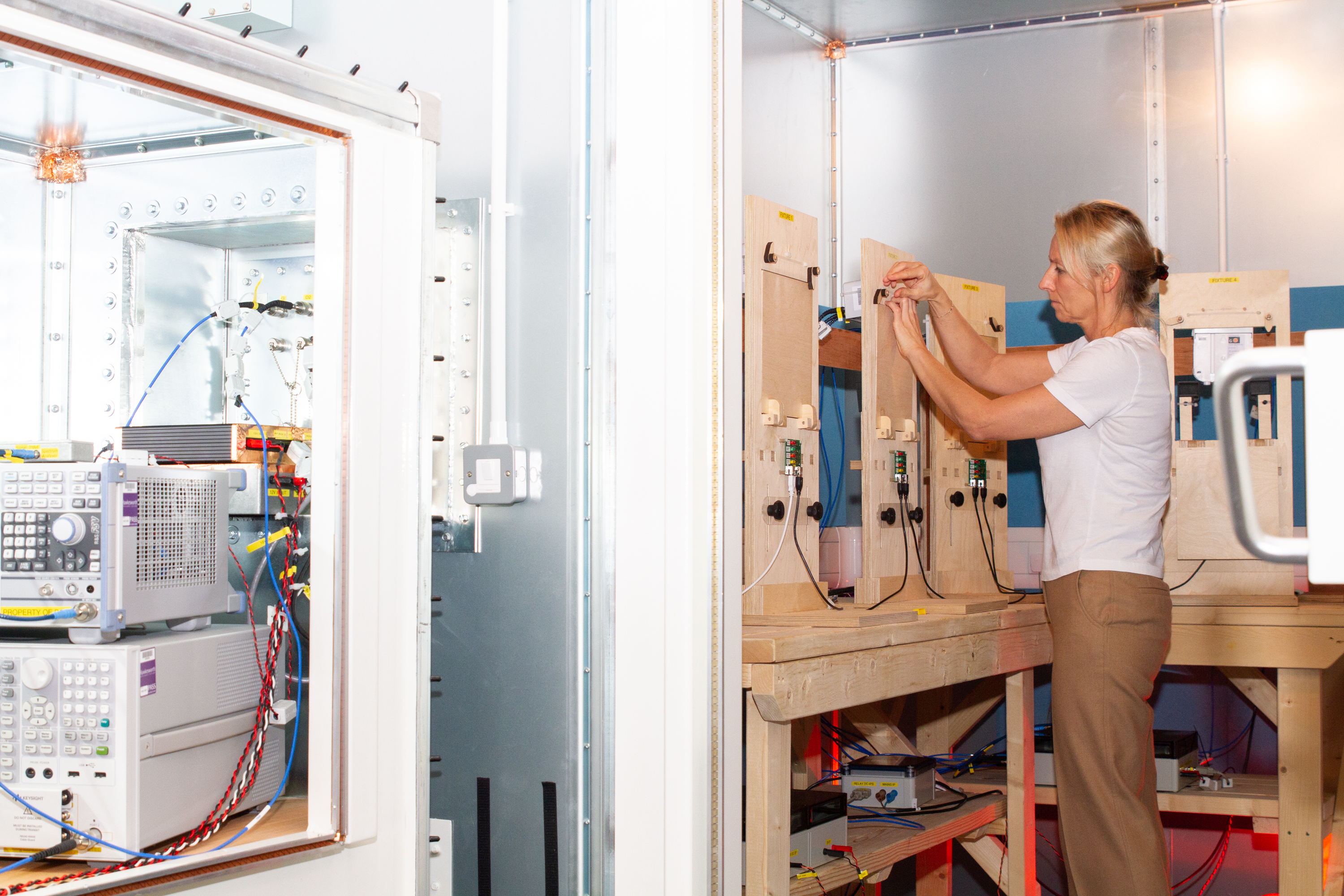
You do not need to be a SEC Party to use our testing facilities.
Click into each option below to find out how we can tailor the testing to your needs.
Customer Devices and Customer-led Testing
You purchase/bring devices to be tested and lead on the testing activity using DCC’s facilities (drawing on DCC expertise as necessary).
Customer Devices and DCC-led Testing
You purchase/bring devices to be tested and DCC leads testing activity, potentially including drawing on new robot-enabled testing facilities.
DCC Devices and DCC-led Testing
DCC provides relevant devices (DCC Boxed, Communication Hub(s), smart meters, or other ancillaries) at its facilities and leads all test activity in line with your test plan.
DCC Devices and Customer-led Testing
DCC provides relevant assets (DCC Boxed, Communication Hub(s), smart meters, or other ancillaries) at its facilities, with the customer leading on testing activity (drawing on DCC expertise as necessary).
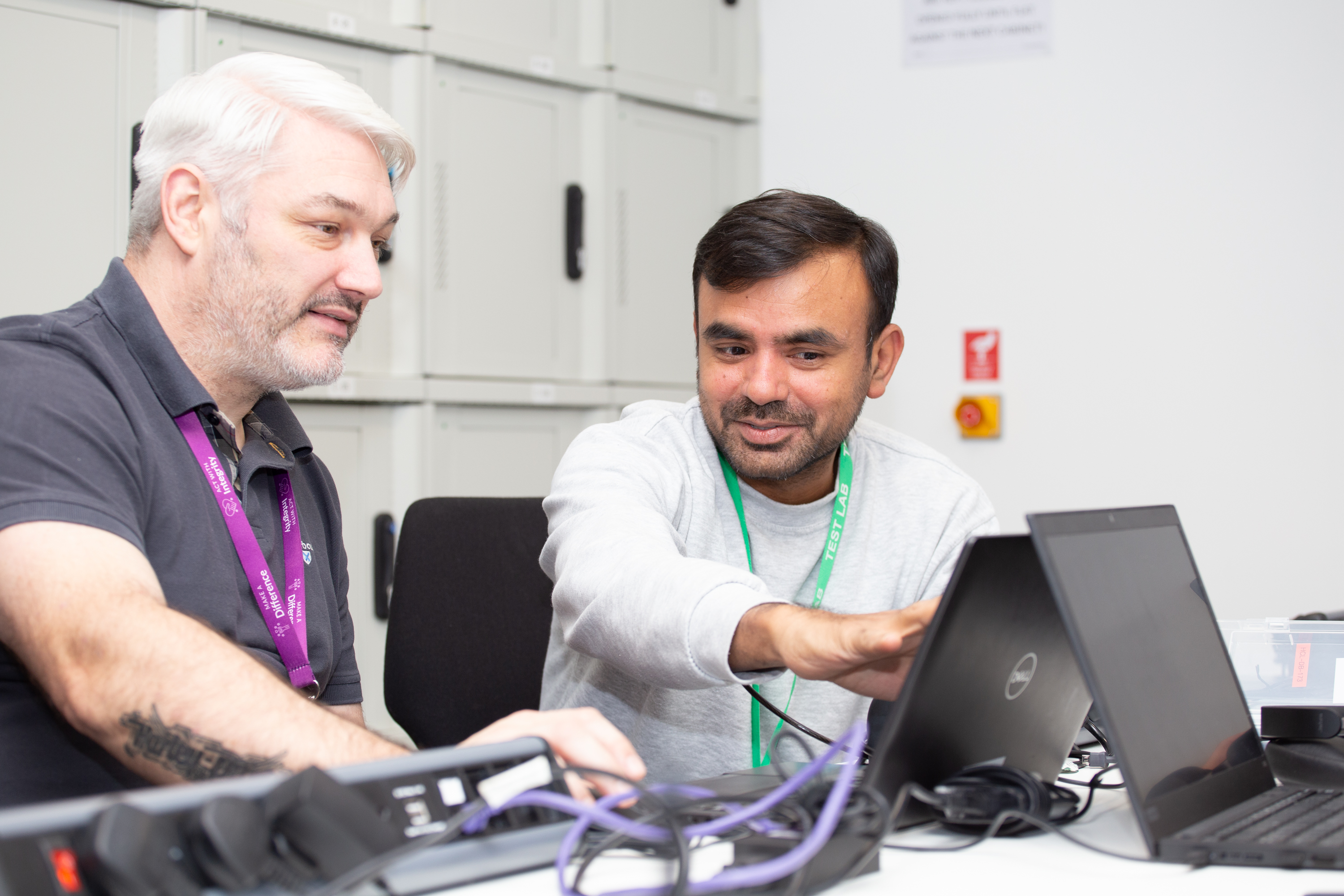
Contact us: testing services
If you would like to know more or start testing with us, contact us using our testing services form below.
SEC documentation
Find out more about our testing services
Documents covering all of our testing services can be found on the SEC website. Look for them in the Smart Energy Code page within the SEC Subsidiary Documents Tab.


